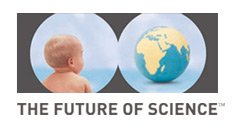Pier Giuseppe Pelicci

Pier Giuseppe Pelicci is Director of Research of the European Institute of Oncology (IEO) in Milan since 2015, chairman of the Department of Experimental Oncology of IEO since 1995 and full professor of general pathology at the University of Milan since 2004. He is also scientific director of the SEMM Foundation (European School of Molecular Medicine) and president of TTFactor Srl, the technology transfer company of IEO and IFOM (FIRC Institute for Molecular Oncology). He is cofounder and scientific advisor of the biotech holding Genextra which controls five biotech companies (Congenia, DAC, Tethis, Intercept and EryDel).
At IEO, Pelicci is responsible for the strategic planning of the institute research programs, including basic, translational and clinical research.
Pelicci has made seminal contributions to the study of leukaemia (identification/functional characterization of the PML-RAR and mutated-NPM oncogenes) and to the definition of the molecular basis of its targeted treatment with retinoic acid and histone deacetylase inhibitors. He has also contributed to the elucidation of the molecular basis of aging and aging-associated diseases (Shc protein family). More recently, he has been focusing on the biological and molecular characterization of normal and cancer stem cells, on the mechanisms of DNA damage, and on relapse acquired chemoresistance in acute myeloid leukaemia, using stem-cell based preclinical and clinical models of leukaemia and breast cancer, next generation sequencing technology and RNA interference approaches. His laboratory is also studying the effects of metabolism and specific checkpoint activation on tissue homeostasis, aging and cancer risk (novel signalling pathway involving p53, p66Shc and reactive oxygen species, risk factors such as overweight and obesity).
Pelicci is member of different national and international societies, and was honoured with a number of prestigious awards (including several international prizes). He has an extensive publication record (445 peer-reviewed manuscripts, including 377 original research papers, 68 invited reviews and 29 book chapters) with H index = 100. Dr Pelicci is holder of 10 granted patents.
Digitizing the Environment: Epigenomic Medicine and the Environmental Impact on Health and Disease
Emerging evidence suggest that environmental factors and lifestyles might influence health and diseases by inducing alterations of chromatin (epigenomic modifications or epimutations), without causing changes in the underlying DNA sequence. Chromatin (the complex of nucleic acids and proteins, primarily histones) is the physiologically relevant substrate for all genetic processes in eukaryotic cells. It represents a signal transduction platform for extracellular or intracellular signals and regulates all genome functions, including gene expression, DNA replication and genome stability. Mechanistically, incoming signals induce complex patterns of enzyme-catalyzed, local or global modifications of DNA (methylation) or histones (phosphorylation, acetylation, ubiquitination, methylation etc.), which result in different biological functions, due to their steric effects or ability to recruit proteins harboring cognate recognition surfaces. Upstream signals can be translated by chromatin into either transient or permanent (and heritable) information, thereby allowing chromatin to serve the double function of adapting cells to the changing environment and maintaining their lineage and/or identity. Notably, epigenomic modifications are not completely cleared on passage through the germ line in mammals, thus allowing their transmission to the offspring (transgenerational epigenetic inheritance). Thus, epigenomic regulation might mediate organism adaptation to the environment through changes in gene expression or DNA replication.
Over the last years we have systematically characterized the effect of dietary modulation on metabolic organs and normal and leukemic stem cells in the mouse. We analysed global changes in RNA transcription, chromatin marks, signaling pathways and genomic stability in mice exposed for various times to diets promoting obesity or weight loss.
We found that diet modulates specific sets of genes in different contexts. In the liver, diet alters transcription and chromatin at promoters of genes involved in setting circadian clocks. In the normal and pre-leukemic bone marrow, diet modulates DNA damage leading to alterations in signaling pathways and genomic stability that strongly modulate the propensity to undergo neoplastic transformation and the reconstitution ability of hematopoietic stem cells. In established leukemias, diet modulates the transcription of metabolic genes, determining changes in the preferential substrate usage. This impacts the natural history of the disease and the balance of leukemic stem cells. In many of these experimental systems, we have identified a central role for histone demethylases, a class of proteins for which pharmacological modulators have become available as of recently. Thus, epigenetic modulation of systemic metabolism and its repercussions on cancer susceptibility is now a realistic route.





